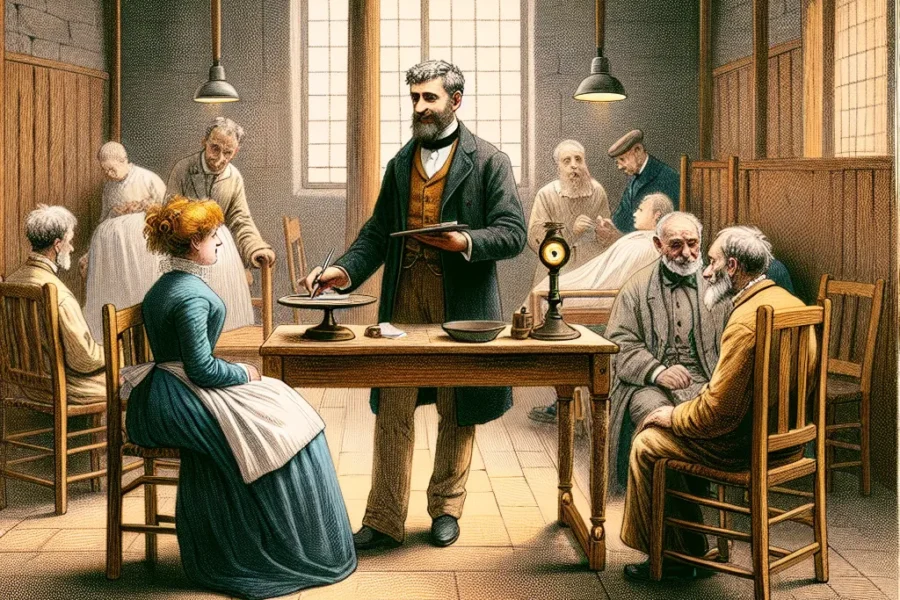John B. Watson: Shaping the Future of Behavioral Psychology
John Broadus Watson remains a towering figure in the realm of psychology, renowned for pioneering the school of thought known as behaviorism. His influential work has profoundly impacted not only the field of psychology but also education, parenting, and advertising, among others. This article delves into the life of Watson, his major contributions, the development of behaviorism, and his enduring legacy in shaping the future of behavioral psychology.
Born in 1878 in South Carolina, John B. Watson grew up in a very tumultuous household, which later influenced his views on human emotions and behavior. After pursuing his undergraduate degree at Furman University, Watson went on to earn his Ph.D. in psychology from the University of Chicago in 1903. It was there that he began his extensive research into animal behavior, which laid the groundwork for his later theories.
Watson’s groundbreaking article, “Psychology as the Behaviorist Views It,” published in 1913, marked the formal beginning of behaviorism as a school of thought. In this manifesto, Watson argued that psychology should be a purely objective experimental branch of natural science, focusing on behavior rather than introspection. His assertion was that behavior could be observed and measured, making it more scientific than the study of the conscious mind.
Behaviorism, as proposed by Watson, was revolutionary. He believed that all behavior, whether animal or human, was a result of conditioning and could be predicted and controlled. This led to the famous Little Albert experiment in 1920, where Watson and his assistant Rosalie Rayner conditioned a small child to fear a white rat by repeatedly pairing its appearance with a loud, frightening noise. This study demonstrated the concept of classical conditioning, which became a cornerstone of behavioral psychology.
Watson’s theories had significant implications for various disciplines. In education, his work suggested that learning processes could be studied and optimized, leading to better educational outcomes. His ideas also influenced parenting. Watson believed that emotional attachments and affection in parenting were less important than reinforcing positive behaviors in children. Although his recommendations have since been criticized and moderated, they spurred important debates and studies in developmental psychology.
Moreover, Watson’s work profoundly impacted advertising, where his principles are still evident today. He is credited with some of the earliest applications of psychological principles to advertising and is considered a pioneer in the field. His belief that consumer behavior could be shaped and modified led to more effective and persuasive advertising techniques that focused on behavioral responses rather than just the features of products.
Watson’s influence extended deep into the development of later psychological theories and practices. B.F. Skinner, one of the most well-known psychologists of the 20th century, expanded upon Watson’s ideas and developed his own theory of operant conditioning. Whereas Watson focused on stimulus-response relationships, Skinner emphasized the consequences of behavior as a critical component of learning and behavior modification. His work built a more complex understanding of behavior while maintaining the fundamental behaviorist view that behavior is the primary subject matter of psychology.
Despite the significant progress made by Watson and other behaviorists, the school of psychology also faced much criticism. Many argued that behaviorism was too mechanistic and simplistic, neglecting the importance of mental states and the influence of genetics on behavior. The cognitive revolution in the mid-20th century shifted the focus of psychology to include the study of mental processes, which behaviorism had largely ignored. Nevertheless, behaviorism’s contributions to understanding learning and behavior modification continue to be influential.
One of Watson’s most enduring legacies is in clinical psychology, where behavior therapies developed from his principles have been employed successfully to treat various psychological disorders. Techniques such as exposure therapy, systematic desensitization, and behavior modification programs are all rooted in behaviorist principles and remain effective treatments for conditions such as phobias, anxiety disorders, and addictive behaviors.
Looking forward, the principles of behaviorism continue to shape the future of psychology, particularly in the burgeoning field of behavioral economics. Here, insights from behavioral psychology are applied to understand decision-making and economic behaviors. The work of psychologists like Daniel Kahneman and Amos Tversky owes a debt to the foundations laid by behaviorists like Watson, even as they move beyond the limitations of early behaviorist thought.
Meanwhile, advancements in neuroscience are providing new ways to observe and understand the biological underpinnings of behavior. Modern researchers can now investigate the neural mechanisms involved in the learning processes that Watson and his contemporaries could only hypothesize about. This interdisciplinary approach extends and complements the work initiated by Watson, by providing a more holistic view of human behavior that encompasses both the observable external behaviors and the internal cognitive processes.
The educational applications of Watsonian behaviorism are also evolving with technology. Educational technologies and teaching methods increasingly employ behaviorist principles in their design and implementation. For example, adaptive learning software uses algorithms to reinforce student learning patterns, demonstrating the principles of conditioning in an educational context.
In conclusion, John B. Watson fundamentally changed the field of psychology with his development of behaviorism. His emphasis on observable behavior and rejection of introspection shifted the focus of psychological research and application. Though behaviorism as originally conceived by Watson has evolved and integrated with other schools of thought, its principles continue to influence various domains, from clinical practice to economics. Watson’s legacy in shaping the understanding of human and animal behavior is undeniable, and his impact on the development and future directions of behavioral psychology remains profound. As we continue to explore the nuances of learning, behavior, and cognition, John B. Watson’s contributions serve as a critical foundation in this ever-evolving field.



Leave a Comment